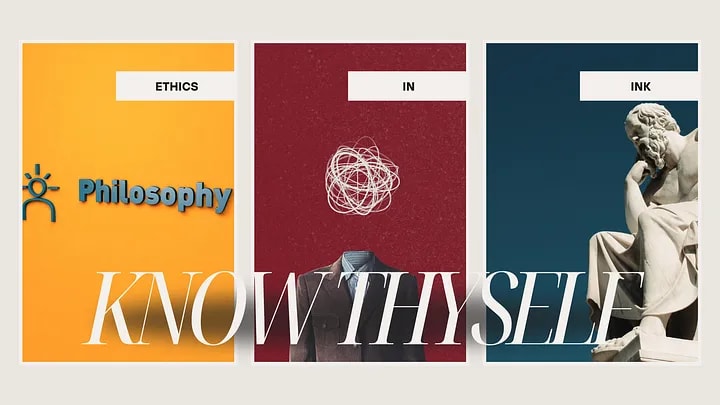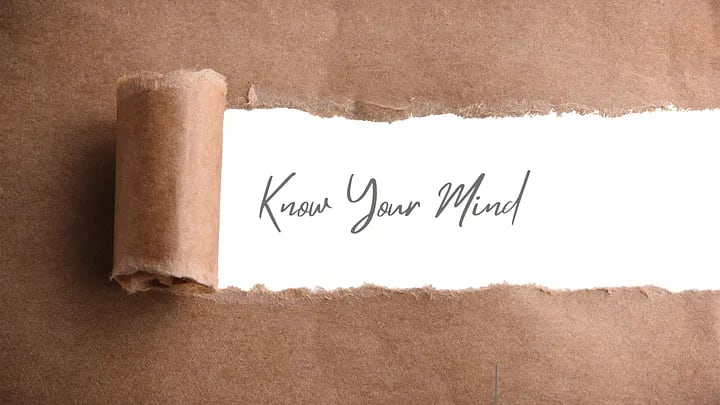The Silent Demise
How Philosophy Shapes Our Lives

*This article is inspired by Nathaniel Brandon’s Lecture on Objectivism
Every debate, every dissension, every conflict will ultimately resolve itself into fundamental questions of ethics, epistemology, and metaphysics. When these deep-rooted issues arise, most people find themselves bewildered and frustrated, often deciding that thinking about them or discussing them is pointless. They conclude that philosophy is useless, abandoning any attempt to seek understanding. But what happens when we give up on philosophy? What are the consequences of living without a rational, philosophical framework?
The Story of John and Jane
Imagine John, a man who has never cultivated an interest in philosophy. One day, he falls in love with Jane. They share many beautiful moments, but like all relationships, they encounter conflicts. One day, a heated quarrel erupts. John walks out in anger, declaring he will never return. As his anger subsides, he is left alone with the weight of what has happened.
He feels desperately unhappy but doesn’t know what to do. He tries to recall the details of the argument but fails to remember how it escalated. He is unsure whether he presented his side clearly or understood what Jane was trying to say. His mind is paralyzed by a heavy, hopeless feeling. He does not attempt to identify the nature of this feeling; he only knows it translates to “What’s the use?”
John doesn’t realize that this feeling stems from a philosophical premise he subconsciously accepted long ago: that thinking is futile and communication is impossible. He has never heard of epistemology, yet this conviction, formed without his conscious awareness, now dictates his actions. He feels he should try to mend the relationship, to call Jane, talk things over calmly, and reach an understanding. But another feeling stops him; a dim, ugly sensation tinged with something resembling shame or guilt. He only knows it translates to “A man ought to have his pride.”
John doesn’t question what pride means. He doesn’t ask himself whether pride is achieved by refusing to retract or correct his irrational statements or whether it consists of giving up lifelong happiness without understanding why. These are moral questions, and he has never been interested in morality or forming any conscious moral convictions.

The Weight of Disappointment
As John contemplates calling Jane, his hand drops and he shrugs. This reaction is prompted by a feeling that has grown within him over time, a feeling shaped by every disappointment he has ever encountered but never analyzed. From the time his mother didn’t buy him the bicycle she promised, to the teacher who gave him a lower grade than he deserved, to the friend who didn’t support him in a quarrel, to the first girl he adored who left him for someone else, to the employer who didn’t give him the job he wanted; all these disappointments sum up in a single, haunting thought: “Happiness is impossible for man on earth.”
John has never heard of metaphysics, yet this unexamined premise controls his actions. He does not call Jane.
The Parallel Struggles
Meanwhile, Jane experiences identical emotional turmoil. She too feels the anguish of their quarrel but thinks, “A girl ought to have her pride” and “No nice girl ever runs after men.” Like John, she doesn’t question these premises. She too decides not to call, and they part ways, never finding romantic happiness again.
John and Jane’s story is not unique. It is a reflection of countless human tragedies that occur every day due to a lack of rational philosophy. Individual lives are destroyed by unexamined beliefs and subconscious premises. When people do not engage in philosophical thinking, they fall prey to irrational convictions that steer their actions and decisions, often to their detriment.
The Importance of Rational Philosophy
Philosophy, at its core, is about understanding the fundamental nature of reality, knowledge, and values. It provides the tools to analyze our beliefs, question our assumptions, and seek coherent answers to life’s deepest questions. Without philosophy, we are left adrift, guided by subconscious beliefs that we do not understand or control.
Ayn Rand, once said,
“Philosophy is not a subject for those who can afford to indulge in unnecessary mental exercises. Philosophy is a necessity for all humans, a crucial part of human life.”
To me, it illuminates the importance of philosophy in guiding our actions and shaping our lives.

The Path Forward
To avoid the fate of John and Jane, we must embrace philosophy and its principles. We need to cultivate a habit of questioning our beliefs, seeking rational explanations, and understanding the underlying premises that guide our actions. By doing so, we can make informed decisions, communicate effectively, and build fulfilling relationships and lives.
Understanding and engaging with philosophy can help us navigate conflicts, make better decisions, and ultimately lead happier, more fulfilling lives. It allows us to recognize and challenge the subconscious premises that influence our behavior, giving us the power to change and improve.
In the end, philosophy is not an abstract, esoteric discipline. It is a practical tool for living a good life. By understanding and applying philosophical principles, we can overcome the helplessness and frustration that arise from unexamined beliefs. We can build stronger relationships, make more informed decisions, and find true happiness.
As we reflect on the story of John and Jane, let us remember the importance of philosophy in our lives. Let us commit to thinking deeply, questioning our assumptions, and seeking rational answers. In doing so, we can avoid the pitfalls of irrational beliefs and create a brighter, more fulfilling future for ourselves and those around us.
About the Creator
Enjoyed the story? Support the Creator.
Subscribe for free to receive all their stories in your feed. You could also pledge your support or give them a one-off tip, letting them know you appreciate their work.





Comments
There are no comments for this story
Be the first to respond and start the conversation.